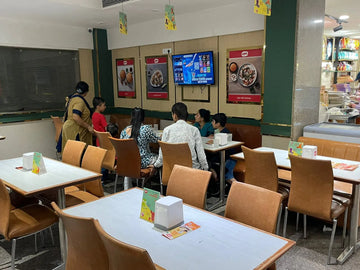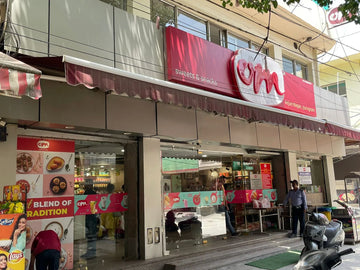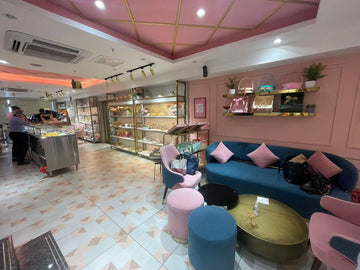Every morning, a fresh sample of doda barfi makes its way to the desk of Om Prakash Kathuria. A mere touch is all it takes for him to determine which batch is up to scratch. Once he gives his nod, the doda barfi and other sweets leave for the shelves.
While Om Sweets boasts a menu of over 600 items—from chaat, south Indian meals and Indian snacks to Chinese items, salads, and rice bowls—doda barfi is the crown jewel. Dark brown in colour, the sweet—also called the ‘Indian fudge’—has an addictive nutty flavour.
“It’s our king product,” said Sunil Dutt at his office in Sector 37, Gurugram. The shelves of his conference room-style office, which can accommodate 15 people, are lined with Om Sweets’ packaged products. The soft-spoken 58-year-old, dressed in a simple white shirt and black trousers, takes pride in his doda barfi. “We confidently say, ‘No one in India makes doda barfi the way we do’.”
On any given day, Om Sweets sells around 8,000-10,000 kilograms of doda barfi. The sales reach 50,000 kg during festivals, especially Diwali. The sweet accounts for 20–30 per cent of the brand’s total turnover, Naqvi said.
But the barfi’s story goes beyond sales figures.
“The day [my family] sold halwa was the day we had food on our plates,” said Sunil, recalling the family’s early days in pre-Partition Multan.
In India, the Kathurias were still building a loyal following when tragedy struck. Their father died, casting a shadow over their fledgling venture. Om Prakash was just 25 at the time. He left his studies to open a small sweet shop in one of Gurugram’s oldest mohallas, Arjun Nagar.
The original shop has since expanded, but not in a flashy way. It wears its simplicity with pride.
“People in the locality won’t let us make it fancy,” Sunil said. “This is their neighbourhood adda. They come in chappals and shorts. If we turn it into some posh café, they will feel out of place.”
Om Sweets has held on to its roots. The doda barfi is still made the old-fashioned way—a special wheat sprout called angoori is stored in earthen pots, and then sun-dried and ground to form the grainy, flavourful base.
“It’s the angoori wheat that gives doda its soul,” Sunil said.
Today, Om Sweets offers two varieties: Kaju doda priced at Rs 600 per kg and Akhroat doda at Rs 1,050 per kg. For Gurugram residents like 30-year-old Urmila, who runs a kirana store near the Om Sweets shop in Arjun Nagar, the barfi is more than just dessert. It’s tradition.
“A hundred grams of doda is how we celebrate birthdays and festivals,” she said with a grin. Her kids wait eagerly for a trip to Om Sweets. “It’s the only place we go to eat outside our home,” she said. “We don’t feel out of place.”







